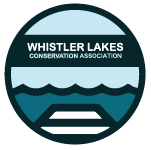The History and Origin of WLCA
In 2020, the Whistler Lakes Conservation Association (“WLCA”) was formed as a not for profit Society under the Societies Act of British Columbia. The primary goal (see the Constitution) is to preserve the pristine lakes of Whistler. This goal is not new to this area because Whistler is on the shared* unceded ancestral lands of the Sk̲wx̲wú7mesh Úxumixw, people of the Squamish Nation and the L̓il̓wat7úl, the people of the Lil’wat Nation.
The use of the word “shared” represents a unique historic protocol agreement signed in March 2001, between the Lil’wat Nation, Squamish Nation and Resort Municipality of Whistler (RMOW). It provides a framework for the establishment of stronger government-to-government-to-government relationships. This agreement seeks to continue to build the tri-partite relationship and move forward key areas of mutual interest.
The ancestors of these two strong Nations have lived, hunted and traded on this land from time immemorial, long before settlers or pioneers arrived. They shared the responsibility of the land, lakes and waterways and cultivated and cared for the ecosystems all across their territory. Indigenous peoples were the original creators of the concept of “leave no trace”. The Squamish Nation and the Lil’wat Nation were the true stewards of this Whistler area, treating it as a “living land” and a precious resource. There are rich stories of summer camps set up in the valley and of the Wolf Clan fishing in Fitzsimons Creek.
Explorers, gold miners and loggers next came to know these Whistler lands and were in awe of the magnificent mountain originally known as Cwítima/ Kacwítima (in Lil’wat language), and Sk̲wik̲w (Squamish in Squamish). The first European name for the mountain was London Mountain, named after a mining claim in the area. With the advent of tourists arriving and the development of the ski resort in the late 1960s the name, London Mountain was changed to “Whistler”. This name represents the whistling calls of the marmots, also known as “whistlers”, that live in the alpine areas of the mountain.
Pioneers settled around the five Whistler lakes, giving them European names: Alpha, Nita, Alta, Lost and Green Lakes. To date we have not found the original indigenous names for these lakes. However, we have learned from Heather Paul, the Executive Director of spectacular Squamish Lil’wat Cultural Centre and Alison Pascal, the Curator, the following poetic words that, in naming local sites, they also describe the beautiful areas around the lakes.
Kítsectsecten – The northern end of Green Lake, means “deer’s rest down area”.
etsáltsem –An area near Green Lake, “Painted Rock”.
S7úm’ik – By the site of the Rainbow Lodge/Alta Lake Station, means “where trout spawn in creek”.
Xwel’píl’cten – A small hill between Alta Lake and Nita Lake. Comes from the word xwelp’ílc – to go over something, place, or object.
Nqwím’tsten – Rainbow Lake
As we live, work and play in Whistler we are fortunate to learn from the shared cultures of the Squamish and Lil’wat Nations. During their stewardship the lakes and lands thrived but in the last decade many local lakeside residents have noticed changes in the lakes’ environment. The Whistler Lakes Conservation Association was formed to work on protecting and preserving the Whistler Lakes.
The WLCA has surveyed its members and has generated a list of issues needing attention. Although each lake has its unique challenges there are many issues that are common to all five lakes.
Issues re boats on the lakes include
speed limits, gas vs. electric motors, boats entering Whistler lakes from other waters without a cleansing station to eliminate contaminants, live aboard-overnight boats and/or remaining all summer, size, monitoring and enforcement, signage needed to educate users, overcrowding, kiosks at launch sites for control and education, reservations system re launching, and rescue provisions.
Issues related to docks and “barges” on the lakes
The Resort Municipality of Whistler’s council has passed a “Dock Strategy” to enforce the Provincial Authorization of docks and a Federal control of barges.
This raises the issues regarding how to obtain licensing from Province and the appropriate size of docks, docks without foreshore ownership and “rogue” barges with no upland lake ownership.
Issues related to water quality
The WLCA has established a Volunteer Lake Monitoring Program (“VLMP”) in partnership with BC Lakes Stewardship Society (“BCLSS”). During the summer and fall of 2021, a group of trained volunteers will be monitoring and recording the quality of the waters in the five Whistler lakes every two weeks while the lakes are open from ice. Data from the program will be uploaded to the provincial database and will help our understanding of the health of the lakes and inform stewardship and management actions.
Issues of contamination
Concerns include invasive plant species, contaminants from sanitizing boats by commercial operators, koi and gold fish and other invasive species and fertilizers from golf courses and public works. There is particular concern with human waste (due to lack of porta-potties) and increasing litter (due to lack of garbage and recycling bins) in the areas with RMOW docks.
Issues related to parking near the lakes in the summer
The lake access parking lots are usually full during the summer, necessitating parking (of cars and boat carriers) on streets surrounding the lakes in residential areas and on the highway.
Positive work to date
In an effort to coordinate and cooperate with the Resort Municipality of Whistler (“RMOW”), there is a committee that meets quarterly with the Environmental Stewardship Manager of RMOW.
The WLCA supports the annual fall “Lake Clean-up” program with volunteer divers assisting to retrieve the litter under and near the docks.
As of March 2021, the WLCA has a membership of 76 lakeside residents and a corporate member, Nita Lake Lodge. We are an enthusiastic group of volunteers and look forward to engaging people who are interested in preserving our pristine lakes of Whistler.
If you are interested in joining the Whistler Lakes Conservation Association you will find the Application for Membership on this website.
